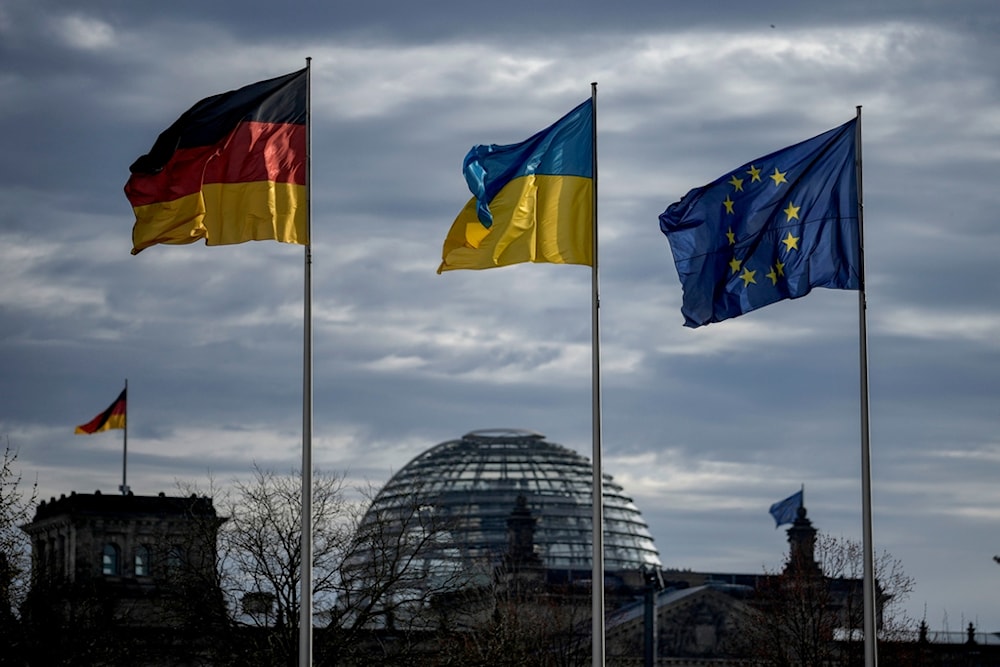Germany backs Czech initiative to source non-EU ammo for Ukraine
Will countries choose to side with the West in fueling the war in Ukraine at the expense of losing their trade and diplomatic relations with Russia?
-

A German, Ukrainian, and European flag wave in front of the Reichstag building in Berlin, Germany, Friday, Feb.16, 2024 (AP)
Chancellor Olaf Scholz's spokesman Steffen Hebestreit announced on Wednesday that Berlin approved a Czech proposal that involves the purchase of ammunition for Ukraine sourced from outside the EU.
The Bundestag pledged a "three-digit million euro sum" to the proposal, Hebestreit said, without specifying where the munitions would be sourced from or disclosing the exact funding amount for the purchase.
Last month, Ukraine lost the strategic city of Avdiivka to Russian forces. The loss was blamed by the Ukrainians on a lack of ammo for their forces.
Since then, Russian forces have been progressively expanding their presence across the Donetsk.
Through the supply of military equipment, ammunition, and training, EU allies have been staunch supporters of Kiev. However, their arsenals have lately run dry.
EU allies have been hesitant to allocate defense funding beyond the confines of the European Union, until now.
"We have finally managed to break the blockade so that we can also procure ammunition outside of Europe," Hebestreit said.
In addition to seeking new supplies from foreign sources, Germany intends to deplete its existing stockpiles of munitions while further increasing its domestic production capacity.
Read more: Ukraine ammo shortage aiding Putin: Zelensky
During the Munich Security Conference last month, Czech President Petr Pavel called for broadening arms purchasing.
He said Czech authorities have identified hundreds of thousands of 155-millimeter ammunition and 122mm shells, which could be sent "within weeks".
An estimated 15 nations are reportedly backing the plan, with the Netherlands publicly committing 100 million euros ($109 million).
Procuring ammunition from sources outside the EU could alleviate pressure on the domestic defense industry, which has struggled to accelerate production to meet the demands of Ukraine.
The EU has significantly lagged behind its pledge made last year to supply one million shells to Ukraine by March 2024.
Read more: NATO chief urges Europe to boost arms production
The question remains: Will countries choose to side with the West in supporting Ukraine against Russia? Because it may be the case that countries opt to avoid doing so.
On February 23, Ecuadorian President Daniel Noboa announced that plans to send outdated Soviet weapons in exchange for new arms from the US were canceled after learning that the old arms would have been delivered to Ukraine.
"To our surprise, the United States has communicated publicly that it will take (the arms) for the armed conflict in Ukraine, in which we do not want to take part, nor do we want to triangulate weapons for it," Noboa told CNN in an interview clip shared on Thursday. "We can't go ahead with it."
"Russia is our third-largest commercial partner, and in this particular case they were right, we would have been triangulating arms and we won't do that," Noboa added.

 3 Min Read
3 Min Read









